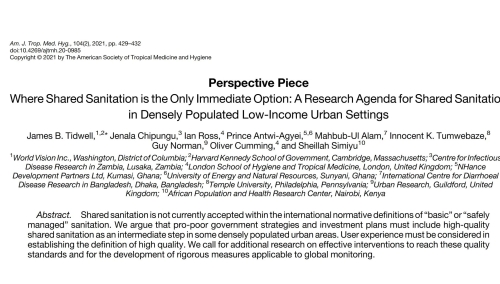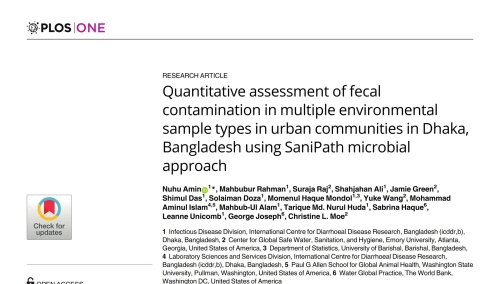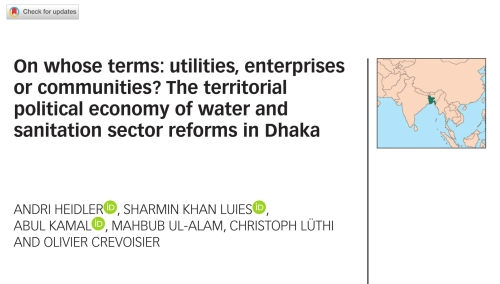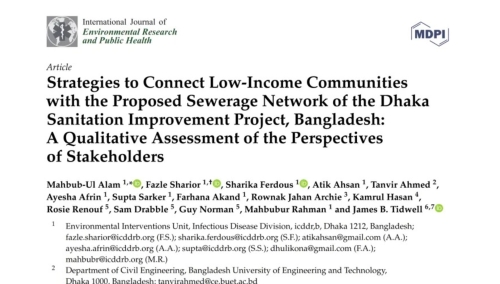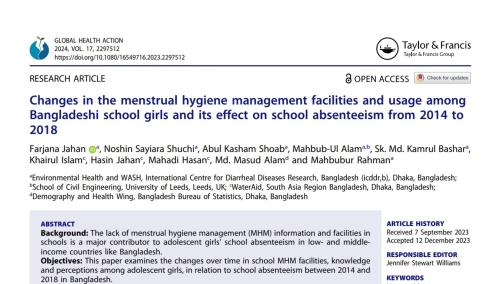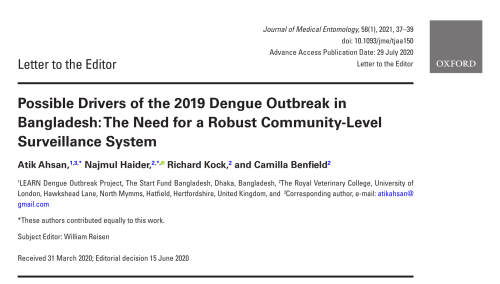Where shared sanitation is the only immediate option: A research agenda for shared sanitation in densely populated low-income urban settings
Shared sanitation is not currently accepted within the international normative definitions of “basic” or “safely managed” sanitation. This study calls for additional research on effective interventions to reach quality standards and for developing rigorous measures applicable to global monitoring

